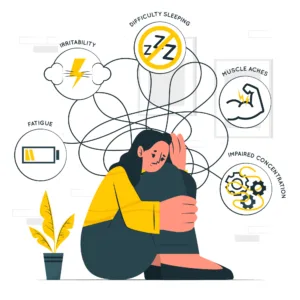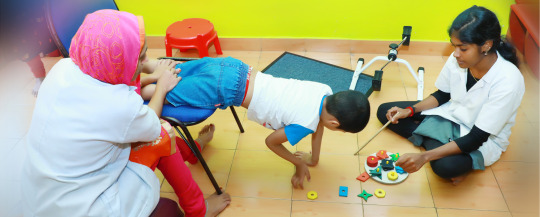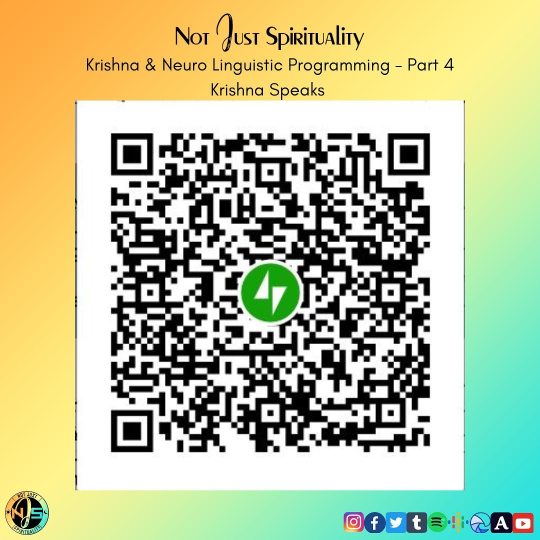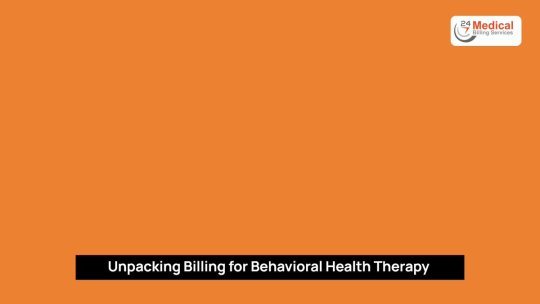#behavioraltherapy
Text
Navigating Positive Change: Behavioral Therapy Services in Hyderabad with Talk and Learn

Welcome to Talk and Learn, your dedicated partner in promoting positive change through our behavioral therapy services in Hyderabad. If you or someone you know is seeking support to overcome behavioral challenges, you've come to the right place.
Understanding Behavioral Therapy:
Behavioral therapy is a goal-oriented approach that focuses on understanding and modifying behavior patterns to improve overall well-being. At Talk and Learn, we provide personalized behavioral therapy services to address a variety of concerns, ranging from stress and anxiety to challenging behaviors.
Our Center:
Talk and Learn is committed to creating a nurturing environment for individuals seeking behavioral therapy in Hyderabad. Our experienced therapists are here to guide you through the process of positive change, fostering growth and improvement in various aspects of life.
Key Features of Our Behavioral Therapy Services:
Individualized Plans: Our therapists work closely with clients to develop personalized behavioral therapy plans that address specific goals and challenges.
Positive Reinforcement: We believe in the power of positive reinforcement to encourage desired behaviors, creating a supportive and uplifting therapeutic experience.
Skill-building: Our focus extends beyond addressing challenges. We equip individuals with valuable skills to navigate and cope with life's complexities.
Collaborative Approach: Talk and Learn values collaboration. We involve clients in the therapy process, ensuring they actively participate in their journey towards positive change.
Contact Us:
Ready to embark on a journey of positive transformation? Contact Talk and Learn today through our website talkandlearn.in or give us a call at 89193 99209. Feel free to reach out via email at [email protected] for any inquiries.
Conclusion:
At Talk and Learn, we understand that behavioral challenges can impact various aspects of life. Our behavioral therapy services are designed to guide you towards positive change, providing the support and tools needed for personal growth. Take the first step towards a brighter future with Talk and Learn's behavioral therapy in Hyderabad.
#BehavioralTherapy#TalkAndLearn#HyderabadTherapy#PositiveChange#TherapyJourney#BehavioralHealth#WellBeing#PersonalGrowth#TalkAndLearnTherapy#HyderabadWellness#PositiveReinforcement#BehavioralSkills#TherapySupport#MentalHealthHyderabad#MindfulLiving#CopingSkills#TalkAndHeal#TherapyGoals#HyderabadCounseling#TransformativeTherapy
0 notes
Text
Mastering Freedom: 7 Absolute Techniques for Overcoming Dependency Disorder Treatment and Achieving Guaranteed Results

Mastering Freedom: 7 Absolute Techniques for Overcoming Dependency Disorder Treatment and Achieving Guaranteed Results
Mastering Freedom: 7 Absolute Techniques for Overcoming Dependency Disorder Treatment and Achieving
Introduction to Dependency Disorder Treatment
Welcome to our comprehensive guide on overcoming dependency disorder treatment. Addiction treatment can be a challenging process, but with the right techniques, support, and resources, it is possible to achieve lasting freedom and well-being.
In this article, we will explore seven essential techniques for overcoming dependency disorder treatment and provide you with valuable insights and strategies for your journey towards recovery. We will delve into the various aspects of addiction treatment and substance abuse treatment, highlighting the importance of seeking professional help and support throughout the process.
Key Takeaways
- Overcoming dependency disorder treatment is achievable with the right techniques, support, and resources.
- Professional help and support are crucial for successful addiction treatment.
- Substance abuse treatment is a holistic process that considers both physical and psychological well-being.
- Effective addiction therapy, counseling services, and support groups can contribute to a successful recovery process.
- Aftercare is essential for maintaining sobriety and achieving long-term recovery.
Understanding Dependency Disorder Treatment
Dependency disorder treatment is a comprehensive approach to addiction recovery that aims to support individuals in achieving lasting sobriety. At its core, this treatment involves seeking professional rehab services that can address the physical, psychological, and social aspects of addiction.

Dependency Disorder Treatment Image Credit: Photo by Julia Larson: https://www.pexels.com/photo/young-drunk-women-slipping-in-messy-room-after-christmas-party-6113661/
The Importance of Rehab Services
Rehab services are essential components of dependency disorder treatment. These services provide individuals with a safe and structured environment where they can receive the necessary support and resources to overcome their addictive behaviors.
Some common types of rehab services include:
- Detoxification programs
- Inpatient treatment programs
- Outpatient treatment programs
- Individual and group therapy sessions
Each type of rehab service is designed to cater to the unique needs of individuals and can support their journey towards achieving sobriety.
Exploring Recovery Programs
Recovery programs are another important aspect of dependency disorder treatment that can help individuals stay on track towards sobriety long after they have completed their initial treatment.
These programs can take on various forms, ranging from support group meetings to aftercare services provided by rehab centers. Some common recovery programs include the following:
- 12-step programs
- Smart Recovery®
- Celebrate Recovery®
- Alumni programs offered by rehab centers.
Addiction Treatments
Each recovery program operates differently, but they all share the same goal of providing individuals with ongoing support and resources to maintain their sobriety.
By understanding the importance of seeking professional rehab services and exploring different recovery programs available, individuals can make informed decisions about their addiction treatment and take the necessary steps towards achieving lasting recovery.
Dual Diagnosis Treatment: Addressing Underlying Mental Health Issues
Dual diagnosis treatment is a crucial aspect of addiction recovery that acknowledges the connection between substance abuse and underlying mental health issues. By treating both the addiction and underlying mental health conditions simultaneously, individuals can achieve lasting recovery and improved overall well-being.
The holistic approach to addiction recovery considers both the physical and psychological components of addiction. This approach addresses the root causes of addiction, rather than just the symptoms, to provide individuals with a more comprehensive path to recovery.

Freepik " />Dependency Disorder Treatment Image Credit:Image by Freepik
Counseling services
At our facility, we offer a wide range of dual diagnosis treatment services, including evidence-based therapy, counseling services, and support groups. Our team of experienced professionals is dedicated to helping individuals address their unique treatment needs while providing compassionate care throughout the recovery process.
The Benefits of Dual Diagnosis Treatment
Simultaneously addressing addiction and underlying mental health issues
Providing a comprehensive approach to recovery
Reducing the risk of relapse
Addressing the root causes of addiction
Improving overall well-being and quality of life
If you or a loved one is struggling with addiction and a co-occurring mental health condition, our dual diagnosis treatment may be the solution you need. Contact us today to learn more about our holistic approach to addiction recovery and how we can support you on your journey towards lasting freedom.
Evidence-Based Therapy: The Key to Successful Recovery
When it comes to addiction therapy, evidence-based therapy is essential for achieving a successful and long-lasting recovery.
This type of therapy is rooted in scientific research and has been proven to be effective in treating addiction.
There are several evidence-based therapies that are commonly used in addiction treatment, including cognitive-behavioral therapy (CBT), contingency management, and motivational interviewing.
Each therapy approach is unique with its specific techniques and goals, but all focus on helping individuals develop the skills and confidence necessary to overcome their addiction.
CBT, for example, focuses on identifying and changing negative thought patterns and behaviors related to addiction.
Optimizing Dependency Disorder Treatment: Harnessing the Power of Positive Reinforcement
Contingency management utilizes positive reinforcement to encourage individuals to abstain from substance use, while motivational interviewing helps individuals gain the motivation necessary to make positive changes in their life.
Incorporating evidence-based therapy techniques into an addiction treatment plan can significantly increase the chances of success.
These therapies are supported by a wealth of research and have shown to be more effective than other non-evidence-based approaches.
Overall, evidence-based therapy serves as a cornerstone of addiction treatment and should be a fundamental component of any recovery program.
The integration of these therapies into treatment plans can help individuals build the skills and self-awareness necessary to maintain lasting sobriety.
The Role of Counseling Services in Dependency Disorder Treatment
Counseling services play a crucial role in dependency disorder treatment, providing individuals with the necessary tools and support to overcome their addictive behaviors.
Addiction counseling focuses on helping patients identify their triggers and underlying causes of their addiction, develop coping strategies, and build a strong support system for lasting recovery.
Counseling services can take many forms, including individual, group, and family therapy. Individual therapy focuses on the patient's personal experience with addiction, exploring their unique challenges and developing personalized strategies for recovery.
Group therapy provides a supportive and collaborative environment, allowing patients to connect with others facing similar struggles, share their experiences, and benefit from the guidance of a trained therapist.
Counseling Services in Dependency Disorder Treatment
Family therapy can help patients and their loved ones heal from the impact of addiction, improving communication, and fostering healthier relationships.
At , we offer a range of counseling services to support our patients in their journey towards recovery.
Our addiction counselors are highly trained and experienced in addressing the complex needs of individuals struggling with addiction.
Through our counseling services, we aim to empower our patients with the knowledge, skills, and ongoing support they need for lasting freedom from addiction.
Support Groups: Finding Strength in Community
At the core of addiction recovery is the power of community. Support groups provide individuals with a safe space to share their experiences, fears and struggles with peers who understand and support their journey towards sobriety.
These groups offer a sense of camaraderie, accountability, and involvement in a shared mission.
Being part of a support group can aid an individual in achieving lasting sobriety. It creates a sense of accountability and inspires them to stay on the path of recovery.
There are various groups available, such as Alcoholics Anonymous (AA), Narcotics Anonymous (NA), and SMART Recovery.
Support Group
Description
Alcoholics Anonymous (AA)
The world's largest peer support group for all individuals looking to overcome alcohol addiction.
Narcotics Anonymous (NA)
A non-profit fellowship that aims to recover from drug addiction.
SMART Recovery
A worldwide organization focused on teaching self-reliance techniques to control addictive behaviors.
Support groups can offer a sense of empowerment and hope to those feeling isolated, allowing them to feel validated and supported.
Group meetings encourage members to share about their struggles and celebrate their victories. This sharing experience enables members to form fruitful relationships through honest communication and discussions.
Benefits of Support Groups in Dependency disorder Treatment
Participating in a support group helps individuals become more aware of themselves and their needs during the recovery process, allowing them to build on their self-worth and self-esteem.
The support from groups can help members challenge negative thought patterns and encourage more productive behaviors.
While support groups offer excellent social support, it is important to remember they are not a substitute for professional counseling or medical treatment.
It is recommended to incorporate support groups into an individual's broader addiction recovery plan, which includes guidance from an addiction specialist, individual counseling, and participation in treatment programs.

Image by storyset on Freepik" />Dependency Disorder Treatment Image Credit: Image by storyset on Freepik
Exploring Holistic Approaches to Addiction Recovery
At our rehab center, we consider a holistic approach to addiction recovery essential for achieving lasting results. A holistic approach to addiction recovery prioritizes the overall well-being of individuals in treatment by addressing their physical, psychological, and spiritual needs.
Alternative therapies and practices, such as yoga, meditation, and acupuncture, complement traditional treatment methods and help individuals develop healthy coping mechanisms. These practices promote relaxation, reduce stress and anxiety, and enhance overall mood.
Holistic Approach in Dependency Disorder Treatment
Moreover, we incorporate nutrition education and exercise programs into our treatment plans, emphasizing the importance of healthy eating habits and regular physical activity for maintaining long-term sobriety.
At our rehab center, we believe that addiction recovery is not just about abstaining from substance use, but about rebuilding a healthy and fulfilling life.
A holistic approach to addiction recovery equips individuals with the tools and skills they need to achieve this goal.
Choosing the Right Rehab Center for Your Recovery
When it comes to selecting a rehab center, it's essential to find a facility that meets your specific needs and preferences. With so many options available, it can be overwhelming to know where to start.
First, consider the type of rehab center you require. Inpatient rehab centers offer 24/7 care and support, while outpatient rehab centers provide flexibility for those with busy schedules.
Additionally, research the rehabilitation programs offered at the center. Are they evidence-based and tailored to the individual's unique needs? Some programs may focus on specific substances, while others may offer dual diagnosis treatment for underlying mental health issues.
Choosing the Ideal Rehab Center for Your Dependency Disorder Treatment
It's crucial to determine which type of center aligns with your needs and situation. Evaluate which programs will help you achieve your desired outcomes. It's also important to consider the location, size, and atmosphere of the rehab center.
Some individuals may prefer a serene, natural environment, while others may prefer a more urban setting. Determine what works best for you and your recovery journey.
When evaluating rehab centers, don't forget to consider if they accept your insurance, or if you require financing options.
Choose Wise Read Reviews
And finally, read reviews and seek referrals from trusted sources to make an informed decision.
Selecting the right rehab center is a crucial step towards a successful and lasting recovery. Take the time to research and evaluate your options carefully.

Freepik" />Dependency Disorder Treatment Image Credit: Image by Freepik
The Importance of Aftercare in Maintaining Sobriety
At the conclusion of an addiction treatment program, individuals face new challenges as they transition back into their daily lives. Aftercare services are crucial in supporting substance abuse recovery and maintaining long-term sobriety.
Rehab services typically offer various aftercare programs, such as counseling sessions, support groups, and sober living arrangements.
These services help individuals cope with post-treatment triggers, stressors, and other obstacles that may arise during recovery.
Individuals may also benefit from continued therapy to address any unresolved underlying issues that contributed to their addiction.
Addiction counseling can provide support and strategies to maintain sobriety while navigating life's challenges.
Empowering Recovery: The Vital Role of Holistic Aftercare in Dependency Disorder Treatment
A holistic approach to addiction recovery can also be effective in promoting long-term sobriety. This approach encompasses the physical, mental, and spiritual aspects of an individual's well-being.
Aftercare services that offer alternative therapies, such as yoga, meditation, or art therapy, can help individuals cultivate a healthy lifestyle and maintain a strong support network with like-minded peers.
Foundations of Lasting Sobriety: The Vital Role of Aftercare in Dependency Disorder Treatment
Overall, aftercare services are an essential component of substance abuse recovery and long-term sobriety.
It is crucial to take advantage of the resources available and continue to prioritize self-care, therapy, and connection with support groups.
Continuing on the path of recovery requires dedication and effort, but with the right resources and support, individuals can achieve lasting freedom from addiction.
Overcoming Challenges in Dependency Disorder Treatment
Dependency disorder treatment can be a long and challenging journey, and individuals may face various obstacles along the way.
However, with the right strategies and support systems, these challenges can be overcome.
One of the most crucial factors in successful addiction recovery is ongoing therapy. Addiction therapy can provide individuals with the tools and support they need to address cravings, cope with stress, and manage triggers that may lead to relapse.
Another critical element of successful recovery is participation in support groups.
Read the full article
#AddictionRecovery#BehavioralChange#BehavioralTherapy#CopingStrategies#DependencyDisorder#EmotionalWellbeing#Empowerment#Freedom#GoalSetting#HealthyMindset#Independence#InnerStrength#LifeSkills#LifestyleChanges#MentalWellness#OvercomingChallenges#PersonalDevelopment#PositiveHabits#PsychologicalHealing#ResilienceBuilding#Self-Empowerment#Self-Improvement#Self-Reliance#TherapyTechniques#TreatmentTechniques
0 notes
Text
The STOP Trick for Instant Emotional Control
Discover the #DBT STOP skill for #emotional regulation. Learn to Stop, Take a step back, Observe, and Proceed mindfully in #stressful situations for better emotional control and #mental wellness
Mastering Emotional Regulation: The DBT STOP SkillAs a psychotherapist, I often find myself delving into various therapeutic strategies to aid clients in managing emotions effectively. One such powerful tool from Dialectical Behavior Therapy (DBT) is the STOP skill, an acronym that stands for Stop, Take a step back, Observe, and Proceed mindfully. This skill is particularly effective for…

View On WordPress
#BehavioralTherapy#CopingStrategies#DBTSkills#DBTTherapy#EmotionalRegulation#HealthyMindset#ManageEmotions#MentalHealthAwareness#MentalHealthMatters#MentalWellness#MindfulLiving#Mindfulness#Psychoeducation#PsychotherapyTools#SelfHelp#STOPMethod#StressManagement#TherapistAdvice#TherapyTechniques
0 notes
Link
🧩 Autism is a complex neurodevelopmental disorder that affects millions of people worldwide. While some individuals with autism are high-functioning and able to live independently, others require more support to navigate daily life. Low functioning autism is a term used to describe individuals who require significant assistance with communication, social interaction, and daily living skills. 🧩 Understanding low functioning autism is crucial for parents, caregivers, and educators who work with individuals on the autism spectrum. These individuals may struggle with sensory processing, communication, and emotional regulation, making it difficult for them to navigate social situations and daily life. It's important to recognize that each person with autism is unique and may require different levels of support. 🧩 Early intervention and individualized treatment plans can help individuals with low functioning autism reach their full potential. While there is no cure for autism, therapies such as speech and occupational therapy, behavioral interventions, and medication can help individuals with autism develop the skills they need to thrive. By understanding the challenges faced by individuals with low functioning autism, we can work to create a more inclusive and supportive society for all.1. What is Low Functioning Autism and How is it Diagnosed?Low functioning autism is a severe form of autism that affects a person's ability to communicate, socialize, and perform daily activities. It is diagnosed based on specific criteria, including impaired social interaction, communication, and repetitive behaviors. To diagnose low functioning autism, doctors use a combination of methods, including observation, interviews with parents and caregivers, and standardized tests. They may also use medical tests to rule out other conditions that may cause similar symptoms. Symptoms of low functioning autism may include delayed speech, lack of eye contact, repetitive behaviors, and difficulty with social interactions. These symptoms may be present from early childhood and may become more severe over time. Early intervention is crucial for children with low functioning autism. Treatment may include behavioral therapy, speech therapy, and medication to manage symptoms. It is essential to work with a team of healthcare professionals to develop a personalized treatment plan. Living with low functioning autism can be challenging, but with the right support and resources, individuals with this condition can lead fulfilling lives. It is essential to focus on their strengths and abilities rather than their limitations. 🧩🧠👥🏥👨⚕️👩🏫👩🔬👨🔬📈📊📚📝🎓🧑🎓🌟2. Understanding the Symptoms and Behaviors of Low Functioning AutismLow functioning autism is characterized by severe impairments in communication, social interaction, and behavior. Individuals with this condition may exhibit the following symptoms and behaviors: Delayed or absent speech Difficulty understanding social cues Repetitive behaviors and routines Aggressive or self-injurious behavior Difficulty with fine and gross motor skills Individuals with low functioning autism may also have intellectual disabilities and require significant support to perform daily tasks. It is important to note that each person with low functioning autism is unique and may exhibit different symptoms and behaviors. It is essential to work with a healthcare professional to develop a personalized treatment plan. Early intervention and therapy can help improve communication, social interaction, and behavior in individuals with low functioning autism. It is also important to provide a structured and predictable environment to help reduce anxiety and promote learning. With appropriate support and understanding, individuals with low functioning autism can lead fulfilling lives and achieve their full potential. 🧩👨👩👧👦👩🦽🧠3. The Importance of Early Intervention for Low Functioning AutismEarly intervention is crucial for low functioning autism. It can improve cognitive, social, and communication skills. It can also reduce challenging behaviors and increase independence. Interventions should be individualized and evidence-based. Applied Behavior Analysis (ABA) is a commonly used intervention. Speech and language therapy and occupational therapy can also be beneficial. Parents and caregivers play a vital role in early intervention. They should be involved in the intervention process and receive training. Early intervention can also improve the quality of life for the whole family. Early intervention can lead to better long-term outcomes. It can increase the likelihood of independent living and employment. It can also reduce the need for special education and support services. Don't wait, seek early intervention for low functioning autism. 👍🏼4. Strategies for Supporting Individuals with Low Functioning AutismIndividuals with low functioning autism require specialized support to thrive. Here are some strategies: Establish a predictable routine to reduce anxiety. Use visual aids such as pictures and schedules to aid communication. Provide sensory input through activities like brushing or deep pressure. Teach social skills using role-playing and video modeling. Implement positive reinforcement to encourage desired behaviors. It's important to tailor strategies to meet the individual's unique needs and abilities. Consider the individual's sensory preferences when selecting activities. Use clear and concise language when giving instructions. Encourage independence by breaking tasks into smaller steps. Collaborate with parents and caregivers to ensure consistency across settings. Monitor progress and adjust strategies as needed. Remember, individuals with low functioning autism have strengths and abilities. Identify and build on these strengths to increase confidence. Provide opportunities for the individual to engage in preferred activities. Encourage participation in community activities to promote socialization. Offer support for transitions and changes in routine. Be patient and understanding, and celebrate small successes. By implementing these strategies, individuals with low functioning autism can lead fulfilling and meaningful lives. 🌟5. Common Challenges and Misconceptions Surrounding Low Functioning Autism🤔 Low functioning autism is often misunderstood. Here are some common misconceptions and challenges: Assumption of low intelligence: People with low functioning autism may have difficulty communicating, but they are not unintelligent. Difficulty with social interaction: Low functioning autism can make social interactions challenging, but it doesn't mean they don't want to connect with others. Behavioral issues: People with low functioning autism may exhibit challenging behaviors, but it's important to understand the underlying cause and not just label them as "bad." Limited communication: Communication can be difficult for those with low functioning autism, but it's important to find alternative ways to communicate. Need for routine: Routine is important for those with low functioning autism, but it's important to find a balance between structure and flexibility. 👉 Understanding and acceptance can go a long way in supporting those with low functioning autism. Educate yourself and others to break down misconceptions and create a more inclusive society.6. Navigating Educational and Therapeutic Services for Low Functioning AutismWhen , it's important to: Research and compare programs Visit potential schools and providers Ask for referrals and recommendations Consider the level of support offered It's also crucial to: Ensure the program is evidence-based Check staff qualifications and training Ask about communication methods Consider the location and transportation options Therapeutic services may include: Occupational therapy for sensory integration Speech therapy for communication skills Applied Behavior Analysis (ABA) for behavior management Physical therapy for motor skills Educational services may include: Individualized Education Plans (IEPs) Special education classrooms Behavioral intervention plans Assistive technology and devices It's important to: Stay involved and informed Communicate regularly with providers Attend meetings and reviews Advocate for your child's needs Remember, finding the right services for your child with low functioning autism may take time and effort, but it's worth it for their growth and development. 🌱7. The Role of Family and Community in Supporting Individuals with Low Functioning AutismFamily and community play a crucial role in supporting individuals with low functioning autism. Family members can provide emotional support and help with daily tasks. Community programs can offer social opportunities and skill-building activities. Support groups can provide a network of understanding and resources. It's important for families to educate themselves on autism and advocate for their loved ones. They can work with schools and healthcare providers to ensure appropriate services. They can also create a safe and structured environment at home. Community involvement can help individuals with autism feel included and valued. It's crucial to recognize the unique strengths and challenges of individuals with low functioning autism. They may struggle with communication and sensory processing. However, they may also have exceptional memory and attention to detail. With support, they can develop skills and lead fulfilling lives. Overall, family and community support is essential for individuals with low functioning autism to thrive. 👨👩👧👦💙🌍 In conclusion, understanding low functioning autism is crucial for providing appropriate support and care. It is important to recognize that individuals with this condition have unique needs and challenges. By educating ourselves and others, we can create a more inclusive and understanding society. Remember, individuals with low functioning autism are not defined by their condition. They have their own personalities, interests, and strengths. With the right support and understanding, they can lead fulfilling lives. Let's work towards a world where everyone is accepted and valued, regardless of their abilities. 🧩💙🌟 Let's spread awareness and acceptance for individuals with low functioning autism. Together, we can make a difference and create a more inclusive world. https://symptomfinder.com/understanding-low-functioning-autism/?_unique_id=6483f39c3517d
#Uncategorised#autismspectrumdisorder#behavioraltherapy#communicationchallenges#developmentaldisability#sensoryprocessingissues#aiomatic_0
0 notes
Text
Everything You need to Know About Cognitive Behavioral Therapy in Treating Alcohol Addicts?
If there is one thing any mental health professional knows, addiction recovery is not a one-step process. The working of every person is different. A unique mind and heart deal with everything differently. Similarly, every person recovers from addiction in a different manner. Every individual looking for recovery from addiction needs to take their path on the long-term recovery road. Cognitive behavioral therapy is here to sort your way out of substance addiction. A well-renowned addiction counseling institute will prove helpful in guiding your path toward recovery. From this blog, you will enhance your knowledge of cognitive behavioral therapy. What it means and how adapting its understanding in your life will help you through your addiction recovery process. We have also listed details on types of CBD used for therapies and ways to make the most out of it.
0 notes
Text
Behavioural Therapy by Jewel

Behaviour therapy is a type of psychotherapy that focuses on changing undesirable behaviours. The therapy involves identifying objectionable, maladaptive behaviours and replacing them with a socially desirable, healthier and adaptive type of behaviours. Jewel Autism Centre is a multi-speciality therapy clinic founded in 2008 specially designed to bridge the gaps in the developmental history of a child. Jewel offers the best autism treatment in India located in Kottayam and now at Dubai. Interventions for Autism Spectrum Disorders are conducted in the following departments of our centre; Occupational Therapy, Behavioural Therapy, Individual Education Program, Applied Behavioural Analysis (ABA) Therapy, Child Psychological Services, Speech Therapy etc.
To know more visit : https://www.jewelautismcentre.com/.../autism-behavioural.../
0 notes
Photo

Part 4 in this series, Krishna & Neuro Linguistic Programming describes how a Master NLP practitioner deals with a grave situation where personal emotions, concerns and flawed thinking come in the way of taking the right decision. . . . . #nlpcoach #neurolinguisticprogramming #nlppractitioner #nlpinspired #nlptraining #nlpcommunity #nlpmaster #sumirnagar #sumirtheseeker #notjustspirituality #behavior #behavioraltherapy #behavioranalysis #mentalhealth #mindset #modelbehavior #psychology #bhagavadgita #bhagavatgita #communication #communicationiskey #communicationskills #communicationtips #confidence #effectivecommunication #empathy #leadership #personalitydevelopment #publicspeaking #softskillstraining @mentalhealthmagazines @rallyupmagazine @mentalhealthpop133 @mentalhealth @letstalk.mentalhealth @mentalhealthworld_ @mentalhealth__community @nlp.community @nlp.neurolinguisticprogramming https://www.instagram.com/p/Cn6acoFLkYp/?igshid=NGJjMDIxMWI=
#nlpcoach#neurolinguisticprogramming#nlppractitioner#nlpinspired#nlptraining#nlpcommunity#nlpmaster#sumirnagar#sumirtheseeker#notjustspirituality#behavior#behavioraltherapy#behavioranalysis#mentalhealth#mindset#modelbehavior#psychology#bhagavadgita#bhagavatgita#communication#communicationiskey#communicationskills#communicationtips#confidence#effectivecommunication#empathy#leadership#personalitydevelopment#publicspeaking#softskillstraining
0 notes
Text
Insights About Suboxone Treatment: Here are the Details

A medicine called Suboxone is used to treat opioid addiction. Naloxone and buprenorphine are combined in this medication. Counseling and behavioral therapy are included in the treatment plan for Suboxone. This blog provides insight into everything you need to know about Suboxone treatment. You'll know about many aspects of this particular treatment. You will know what Suboxone is and how it helps in the treatment, some advantages of suboxone therapy, and lastly, you can learn about How to become a trauma and drug abuse counsellor. Suboxone treatment can be successful with the support of family and friends. A strong support system is essential to overcoming the challenges of recovery as you battle the longing and withdrawal symptoms associated with opioid addiction.
More information - Heroin Treatment Suboxone
0 notes
Text
Seek Professional Help and Take a Step Toward a Better Life Now
We at True Health Center for Emotional Wellness recognize the fact that each and every person deals with their unique sets of challenges. If you are looking for CBT for teenagers or Cognitive Behavioral Therapy, Experiential Therapy, Dialectical Behavioral Therapy, or Accelerated Resolution Therapy, relying on us will indeed be your best decision ever. We simply don't believe in one-size-fits-all treatment processes; our primary aim is to design a well-rounded program that will help you combat the given situation. If you are one of them suffering from such tough situations, our comfortable, stimulating, and safe environment will make you feel at ease! Apart from that, we also extend our helping hands to offer Medication Management Referrals, Psychiatric Evaluations, LGBTQ Support, and Family Systems Therapy. You can now say no to your anxiety, trauma, depression, grief and loss, relationship conflicts, social isolation, mood swings or mood disorders, difficulty functioning at school, and Post-Traumatic Stress Disorder.
0 notes
Link
How can I help people suffer less and live fuller lives?
As a coach and even as an individual how many times have you asked this question to yourself? How many times has your reply to this question been satisfactory? Isn’t this the dream of every coach to help people, to help their clients, their family, and their near ones?
Even to me as a writer, this question drives me every day. How can I help my readers? How can I get them going? How can I add value to them?
During one of my research, I came across the concept of cognitive behavioral therapy. I discovered how CBT might help us replace unproductive ideas and behaviors with more productive ones. I was baffled. The approach looked realistic, collaborative between the therapist and the client, and considerate of individuals seeking assistance. CBT appealed to my humanistic leanings because it implied that we can use what’s whole in us to cure what’s broken. So I finally decided to write about it.
0 notes
Text

Behavioral therapy for ADHD | Best ADHD Centre in Bangalore | CAPAAR
Best ADHD Centre in Bangalore | CAPAAR. Behavioral therapy primarily focuses on reinforcing positive behavior in children. Special attention is given to the social and academic skills of children with ADHD, and practical behavioral goals are prepared for each child. A child with good performance and behavior is also rewarded.
For more updates on "ADHD" visit: http://capaar4autism.com or reach us @ 9986455919
#ADHDAwarenessMonth #NationalADHDAwarenessMonth #ADHDAwareness #ADHD #ADHDChild #ADHDTherapy #ADHDTreatment #ADHDCentre #BehavioralTherapy #ADHDClinic #EarlyIntervention #adhdlife #adhdsupport #adhdproblems #adhdparenting #adhdtips #adhdkids #AutismTreatment #speechtherapy #speechdelay #Communication #SpeechPathologist #CAPAAR #Capaar4Autism #DrPSumithaHemavathy #Hulimavu #Bannerghatta #Bangalore
0 notes
Text
Improving Psychosocial Function in Testicular Cancer Survivors
Young adult testicular cancer survivors may face psychosocial challenges. New behavioral therapy GET improves self-regulation and reduces symptoms. #testicularcancer #cancersurvivors #psychosocialfunction #behavioraltherapy #emotionregulation #depression
Testicular cancer is a prevalent non-skin cancer among males in late adolescence and early adulthood, and young adult survivors are known to face unique challenges later on in their adult lives.
These challenges include both psychological and physical impacts, such as body image disruption, social relationship difficulty, fertility and sexual distress, anxiety, depression, and fear of cancer…

View On WordPress
#anxiety#behavioral therapy#cancer survivors#depression#emotion regulation#goal navigation#psychosocial function#self-regulation.#Testicular cancer
0 notes
Text
#JamesDonaldson On #MentalHealth – #Exercise Decreases #SuicideAttempts in Those With #Mental And Physical Illness

Summary: Engaging in an #exercise program reduced #suicidalthoughts and actions in patients with #mental and physical health problems who previously had #suicidalideations
Source: University of Ottawa
A new study from the University of Ottawa’s Faculty of Medicine found #patients with #mental or physical illness were able to successfully adhere to #exercise regimes despite previous thinking, resulting in decreased #suicideattempts.
The findings cast doubt on the misconception that #patients suffering from #mental or physical illness are not motivated to participate in a physical #exercise regime, which has similar efficacy to antidepressants and cognitive #behavioraltherapy in the treatment of #depression. It’s effect on #suicidalbehaviors, however, was unclear.
A new study from the University of Ottawa’s Faculty of Medicine found #patients with #mental or physical illness were able to successfully adhere to exercise regimes despite previous thinking, resulting in decreased #suicideattempts. Image is in the public domain
“This misconception has led to primary care providers under-prescribing exercise, resulting in further deterioration of #patients’ #mental and physical health,” says Dr. Nicholas Fabiano, a psychiatry resident and lead author of the study with medical student Arnav Gupta.
“The findings of this study “debunk” this belief as #exercise was well tolerated in those with #mental or physical illness. Therefore, providers should not have apprehension about prescribing exercise to these #patients.”
Under the supervision of Dr. Marco Solmi and Dr. Jess Feidorowicz from the Department of Psychiatry, Fabiano and Gupta evaluated 17 randomized control trials with over 1,000 participants to deduct their findings.
#James Donaldson notes:Welcome to the “next chapter” of my life… being a voice and an advocate for #mentalhealthawarenessandsuicideprevention, especially pertaining to our younger generation of students and student-athletes.Getting men to speak up and reach out for help and assistance is one of my passions. Us men need to not suffer in silence or drown our sorrows in alcohol, hang out at bars and strip joints, or get involved with drug use.Having gone through a recent bout of #depression and #suicidalthoughts myself, I realize now, that I can make a huge difference in the lives of so many by sharing my story, and by sharing various resources I come across as I work in this space. #http://bit.ly/JamesMentalHealthArticleOrder your copy of James Donaldson's latest book,#CelebratingYourGiftofLife:From The Verge of Suicide to a Life of Purpose and Joy
www.celebratingyourgiftoflife.com
About this #exercise and #mentalhealth research news
Author: Paul LogothetisSource: University of OttawaContact: Paul Logothetis – University of OttawaImage: The image is in the public domain
Original Research: Open access.“The effect of #exercise on #suicidalbehaviors: A systematic review and meta-analysis of randomized controlled trials” by Nicholas Fabiano et al. Journal of Affective Disorders
Abstract
The effect of exercise on #suicidalbehaviors: A systematic review and meta-analysis of randomized controlled trials
Background
Although #exercise may positively impact those with #mental or other medical illnesses, there is a lack of understanding on how it influences #suicidalideation or risk.
Methods
We conducted a PRISMA 2020-compliant systematic review searching MEDLINE, EMBASE, Cochrane, and PsycINFO from inception to June 21, 2022. Randomized controlled trials (RCTs) investigating #exercise and #suicidalideation in subject with #mental or physical conditions were included. Random-effects meta-analysis was conducted. The primary outcome was #suicidalideation. We assessed bias of studies with risk of bias tool 2.
Results
We identified 17 RCTs encompassing 1021 participants. #Depression was the most included condition (71?%, k?=?12). Mean follow up was 10.0?weeks (SD?=?5.2). Post-intervention #suicidalideation (SMD?=?-1.09, CI -3.08–0.90, p?=?0.20, k?=?5) was not significantly different between #exercise and control groups. #Suicideattempts were significantly reduced in participants randomized to exercise interventions as compared to inactive controls (OR?=?0.23, CI 0.09–0.67, p?=?0.04, k?=?2). Fourteen studies (82?%) were at high risk of bias.
Limitations
This meta-analysis is limited by few, and underpowered and heterogenous studies.
Conclusion
Overall, our meta-analysis did not find a significant decrease in #suicidalideation or mortality between #exercise and control groups. However, #exercise did significantly decrease #suicideattempts. Results should be considered preliminary, and more and larger studies assessing suicidality in RCTs testing #exercise are needed.
Read the full article
0 notes
Link
🧠 Hyperexcitability symptoms can be a challenging condition to deal with. It can cause a range of physical and emotional symptoms that can be debilitating for those who suffer from it. Hyperexcitability can be caused by a variety of factors, including genetics, environmental factors, and lifestyle choices. 🏥 The symptoms of hyperexcitability can include anxiety, restlessness, irritability, and difficulty sleeping. These symptoms can be particularly difficult to manage, and can have a significant impact on a person's quality of life. Fortunately, there are a number of treatment options available that can help to alleviate these symptoms and improve overall well-being. 💊 Treatment options for hyperexcitability symptoms can include medication, therapy, and lifestyle changes. It is important to work with a healthcare professional to determine the best course of treatment for your individual needs. With the right treatment plan, it is possible to manage hyperexcitability symptoms and live a fulfilling life.1. Understanding Hyperexcitability: Definition and SymptomsHyperexcitability is a state of increased sensitivity to stimuli. Symptoms include irritability, anxiety, and restlessness. It can be caused by various factors, such as genetics, stress, and neurological disorders. People with hyperexcitability may experience sensory overload, difficulty concentrating, and sleep disturbances. They may also be easily startled and have a heightened startle reflex. Hyperexcitability can be managed through lifestyle changes, such as exercise and stress reduction techniques. Medications and therapy may also be helpful in some cases. It's important to seek medical attention if hyperexcitability is impacting daily life. A healthcare provider can help determine the underlying cause and develop a treatment plan. Remember, hyperexcitability is a real condition that affects many people. Understanding the symptoms and seeking help can lead to better management and an improved quality of life. 🧠💪🏼2. What Causes Hyperexcitability? Exploring the Root CausesHyperexcitability can be caused by a variety of factors, including: Genetic predisposition Brain injury or trauma Neurological disorders Stress and anxiety Drug or alcohol abuse Research suggests that hyperexcitability may also be linked to imbalances in neurotransmitters, such as dopamine and serotonin. Other potential root causes include sleep disorders, hormonal imbalances, and environmental factors such as exposure to toxins or pollutants. Identifying the underlying cause of hyperexcitability is crucial for effective treatment and management of symptoms. Consulting with a healthcare professional and undergoing diagnostic testing can help determine the root cause of hyperexcitability. Once the cause is identified, a personalized treatment plan can be developed to address the specific needs of the individual. 🧠💊👩⚕️📝3. The Role of Genetics in Hyperexcitability SymptomsGenetics plays a crucial role in hyperexcitability symptoms. 🧬 Mutations in genes that regulate ion channels and neurotransmitter receptors can cause hyperexcitability. 🧬 Genetic factors can also increase susceptibility to environmental triggers. 🧬 Familial cases of hyperexcitability disorders suggest a strong genetic component. 🧬 Genetic testing can identify mutations that cause hyperexcitability and guide treatment. 🧬 Understanding the genetic basis of hyperexcitability can lead to new treatments and therapies.4. Lifestyle Factors that Contribute to HyperexcitabilityHyperexcitability can be caused by various lifestyle factors. Here are some of them: 💤 Lack of sleep can lead to hyperexcitability. 🍔 Poor diet and high sugar intake can cause hyperactivity. 📱 Excessive screen time and social media use can lead to overstimulation. 🏋️♀️ Lack of physical activity can contribute to hyperactivity. 🍺 Alcohol and drug use can cause hyperexcitability and impulsivity. It's important to maintain a healthy lifestyle to prevent hyperexcitability. 🛌 Get enough sleep and establish a regular sleep pattern. 🥦 Eat a balanced diet and limit sugar intake. 📵 Reduce screen time and take breaks from technology. 🏃♀️ Engage in regular physical activity to release excess energy. 🚫 Avoid alcohol and drugs to prevent hyperexcitability. By making positive lifestyle changes, you can reduce hyperexcitability and improve your overall health.5. Treating Hyperexcitability: Medications and TherapiesHyperexcitability can be treated with medications and therapies. Here are some options: Medications: Antidepressants, antipsychotics, and anticonvulsants can help regulate mood and behavior. Therapies: Cognitive-behavioral therapy, psychotherapy, and occupational therapy can teach coping skills and reduce stress. Exercise: Regular physical activity can reduce hyperactivity and improve mood. Diet: A balanced diet with reduced sugar and caffeine can help regulate energy levels. Mindfulness: Meditation and relaxation techniques can reduce anxiety and improve focus. It's important to work with a healthcare professional to determine the best treatment plan for hyperexcitability. Some medications may have side effects and therapies may take time to see results. Patience and consistency are key. Remember, treating hyperexcitability is a journey, not a destination. It's important to continue to monitor and adjust treatment as needed. 🧘♀️🏋️♂️🍎💊💆♂️6. Coping Strategies for Hyperexcitability: Tips and Techniques 🧘♀️ Practice mindfulness and deep breathing exercises to calm your mind and body. 📱 Limit your screen time and take regular breaks from technology to reduce overstimulation. 🏃♀️ Engage in physical activities like yoga or running to release excess energy. 🎨 Use creative outlets like drawing or writing to express your emotions and thoughts. 🧩 Break down tasks into smaller, manageable steps to avoid feeling overwhelmed. 💤 Prioritize getting enough sleep and establish a consistent bedtime routine. 🌿 Incorporate relaxation techniques like aromatherapy or taking a hot bath. 👥 Seek support from friends, family, or a therapist to talk through your feelings and experiences. 🌞 Spend time in nature and soak up the calming effects of the outdoors. 🍎 Maintain a healthy diet and avoid consuming too much caffeine or sugar.7. Seeking Professional Help for Hyperexcitability: When to Consult a DoctorHyperexcitability can be challenging to manage, but seeking professional help can make a huge difference. Here are some signs that it's time to consult a doctor: Difficulty focusing or completing tasks Impulsive behavior or poor decision-making Excessive energy or restlessness Difficulty sleeping or staying asleep A doctor can evaluate your symptoms and recommend a treatment plan. Options may include medication, therapy, or lifestyle changes. It's essential to follow the doctor's advice and attend follow-up appointments. Medication can help manage symptoms, but it's not a cure. It's crucial to take medication as prescribed and report any side effects to your doctor. Therapy can also be beneficial, such as cognitive-behavioral therapy or mindfulness-based stress reduction. Lifestyle changes can also make a significant impact. Regular exercise, a healthy diet, and getting enough sleep can help manage hyperexcitability. It's also essential to avoid caffeine, nicotine, and alcohol, which can exacerbate symptoms. Don't hesitate to seek help if you're struggling with hyperexcitability. With the right treatment plan, you can manage your symptoms and improve your quality of life. 🙌 In conclusion, hyperexcitability symptoms can be caused by a variety of factors such as genetics, brain injuries, and certain medical conditions. It is important to seek medical attention if you are experiencing any of these symptoms to determine the underlying cause and receive appropriate treatment. Treatment options may include medication, therapy, and lifestyle changes. With proper management, individuals with hyperexcitability symptoms can lead fulfilling lives. Remember to prioritize self-care and seek support from loved ones and healthcare professionals. 🧘♀️💊👨⚕️ https://symptomfinder.com/hyperexcitability-symptoms-causes-and-treatment/?_unique_id=647cfa2f9f95b
#Uncategorised#anxietymanagement#behavioraltherapy#Hyperexcitabilitysymptoms#NeurologicalDisorders#sensoryoverload#aiomatic_0
0 notes
Photo

Unpacking Billing for Behavioral Health Therapy Want to optimize your #BehavioralHealth Therapy? Watch this video- https://t.co/KoTf7PpTe8 Contact 24/7 Medical Billing Services now at +1 888-502-0537/ #Medicalbilling #behavioralhealth #behavioralhealthcare #behavioraltherapy https://t.co/2Gd2dCmDMC
0 notes
Text
Occupational Therapy
Jewel Autism Centre’s occupational therapy program is one of the world’s best occupational program with timely updations and therapy materials under the sensory integration therapy approaches. Our Occupational therapy program focuses on evaluation and training of gross motor skills, fine motor skills, cognitive-perceptual skills, pre-writing skills, activities of daily living, social skills, play skills, and sensory integrative dysfunction. To know more about occupational therapy and other therapies visit https://www.jewelautismcentre.com/
Contact : (+91) 9745 451 747 | (+91) 9846 565 524

#autismcentre#occupationaltherapy#autismcare#bestautismcentre#autismawareness#behavioraltherapy#speechtherapy#playtherapy#jewelautismcentre
0 notes